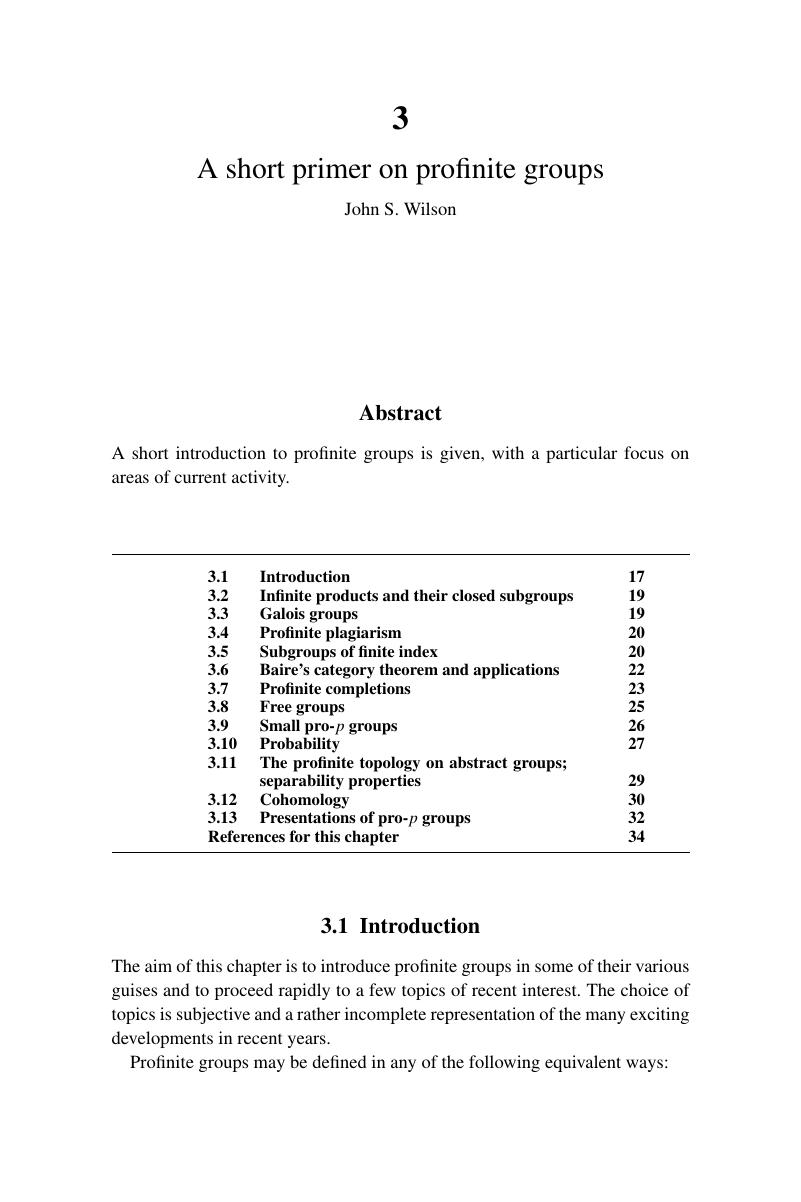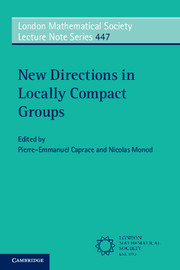Book contents
- Frontmatter
- Contents
- Foreword
- 1 On the role of totally disconnected groups in the structure of locally compact groups
- 2 Locally compact groups as metric spaces
- 3 A short primer on profinite groups
- 4 Lectures on Lie groups over local fields
- 5 Abstract quotients of profinite groups, after Nikolov and Segal
- 6 Automorphism groups of trees: generalities and prescribed local actions
- 7 Simon Smith's construction of an uncountable family of simple, totally disconnected, locally compact groups
- 8 The Neretin groups
- 9 The scale function and tidy subgroups
- 10 Contraction groups and the scale
- 11 The Bader–Shalom normal subgroup theorem
- 12 Burger–Mozes’ simple lattices
- 13 A lecture on invariant random subgroups
- 14 L2-Betti number of discrete and non-discrete groups
- 15 Minimal normal closed subgroups in compactly generated tdlc groups
- 16 Elementary totally disconnected locally compact groups, after Wesolek
- 17 The structure lattice of a totally disconnected locally compact group
- 18 The centraliser lattice
- 19 On the quasi-isometric classification of locally compact groups
- 20 Future directions in locally compact groups: a tentative problem list
- Index
- References
3 - A short primer on profinite groups
Published online by Cambridge University Press: 05 February 2018
- Frontmatter
- Contents
- Foreword
- 1 On the role of totally disconnected groups in the structure of locally compact groups
- 2 Locally compact groups as metric spaces
- 3 A short primer on profinite groups
- 4 Lectures on Lie groups over local fields
- 5 Abstract quotients of profinite groups, after Nikolov and Segal
- 6 Automorphism groups of trees: generalities and prescribed local actions
- 7 Simon Smith's construction of an uncountable family of simple, totally disconnected, locally compact groups
- 8 The Neretin groups
- 9 The scale function and tidy subgroups
- 10 Contraction groups and the scale
- 11 The Bader–Shalom normal subgroup theorem
- 12 Burger–Mozes’ simple lattices
- 13 A lecture on invariant random subgroups
- 14 L2-Betti number of discrete and non-discrete groups
- 15 Minimal normal closed subgroups in compactly generated tdlc groups
- 16 Elementary totally disconnected locally compact groups, after Wesolek
- 17 The structure lattice of a totally disconnected locally compact group
- 18 The centraliser lattice
- 19 On the quasi-isometric classification of locally compact groups
- 20 Future directions in locally compact groups: a tentative problem list
- Index
- References
Summary

Information
- Type
- Chapter
- Information
- New Directions in Locally Compact Groups , pp. 17 - 36Publisher: Cambridge University PressPrint publication year: 2018
